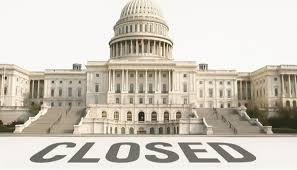An Ongoing Crisis with No Solution in Sight .. Airports and Military Facing the Consequences of the Government Shutdown in America

The United States enters its second week of government shutdown amid a lack of indicators for any near resolution, causing the features of the crisis to gradually reflect on the vital facilities in the country. As political deadlock and accusations between the Republican and Democratic parties escalate, the effects of administrative paralysis are striking deep into sensitive sectors including airports and the armed forces, while hundreds of thousands of federal employees live in a state of anxiety and anticipation.
Airports in Danger
Air traffic at several U.S. airports is experiencing a noticeable slowdown due to the significant shortage of air traffic controllers caused by the ongoing shutdown. On October 6, air traffic operations at Hollywood Burbank Airport in California halted for long hours, resulting in delays for thousands of flights and disrupting passenger movement at other major airports including Chicago O'Hare International Airport. Officials fear that the crisis may extend to Reagan Airport near Congress, which witnessed a collision between a military helicopter and a civilian plane last January, partially attributed to a shortage of air crews. U.S. Transportation Secretary Sean Duffy confirmed that passenger safety is a top priority, but warned of the possibility of a decrease in the number of workers as salary suspensions continue, indicating that his department may have to reduce flight operations to avoid potential accidents.
The U.S. Military in a Financial Dilemma
The crisis is not limited to the transportation sector but has extended to the Pentagon, which will face the risk of failing to pay soldiers' salaries on October 15 if the shutdown continues. This halt affects all military facilities, threatening more than a million personnel inside and outside the country.
A Political Battle Under the Capitol Dome
Amid the escalating crisis, both sides exchange accusations regarding responsibility for the ongoing government paralysis. Republicans, led by their Senate leader John Thune, insist on passing the comprehensive funding bill approved by the House of Representatives before the shutdown, while Democrats are calling for an emergency session to vote on funding for defense only. They point out that House Speaker Mike Johnson has not convened the House since the beginning of the crisis, exacerbating the deadlock and prolonging the shutdown.
Federal Employees... The Biggest Losers
While Washington is preoccupied with its political struggles, hundreds of thousands of federal employees remain direct victims of the crisis. Some are working without pay awaiting a settlement that may take a long time, while others face the risk of dismissal or losing government benefits. President Trump has hinted at not paying these employees retroactively as has been customary after the end of the shutdown, which legal experts consider a violation that could push the battle into the courts. Amid political stubbornness and economic tension, the United States appears to be heading towards one of the most critical phases of administrative paralysis in its modern history.